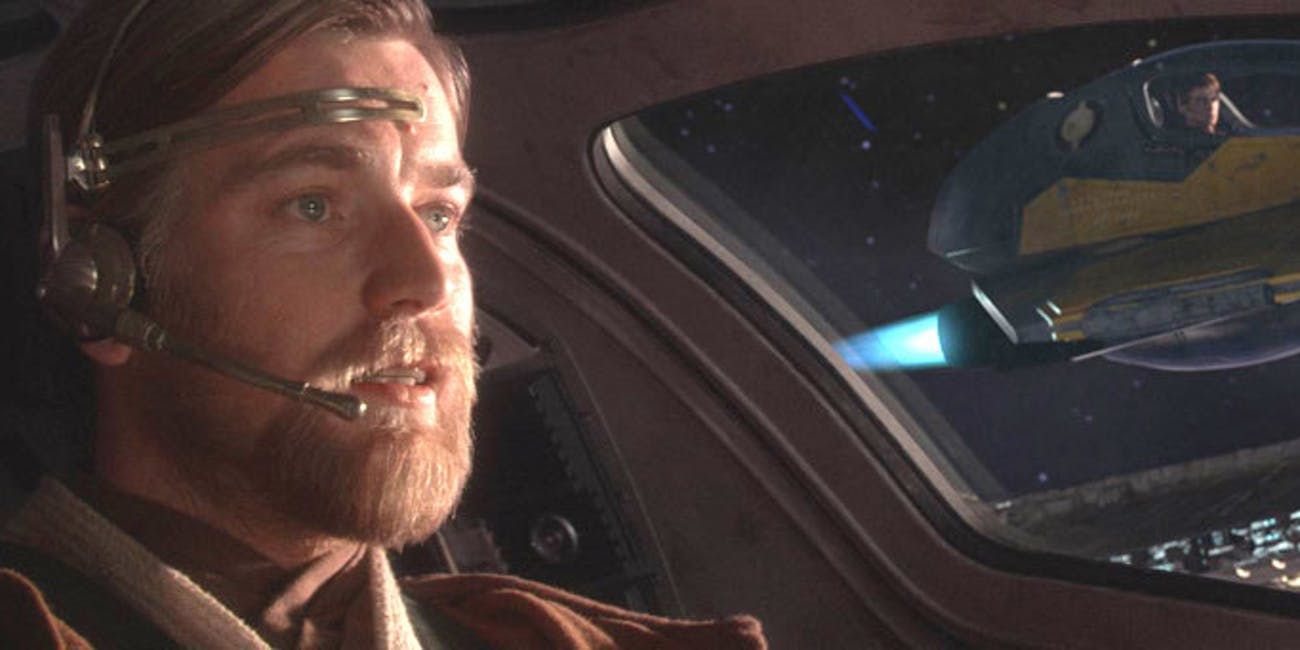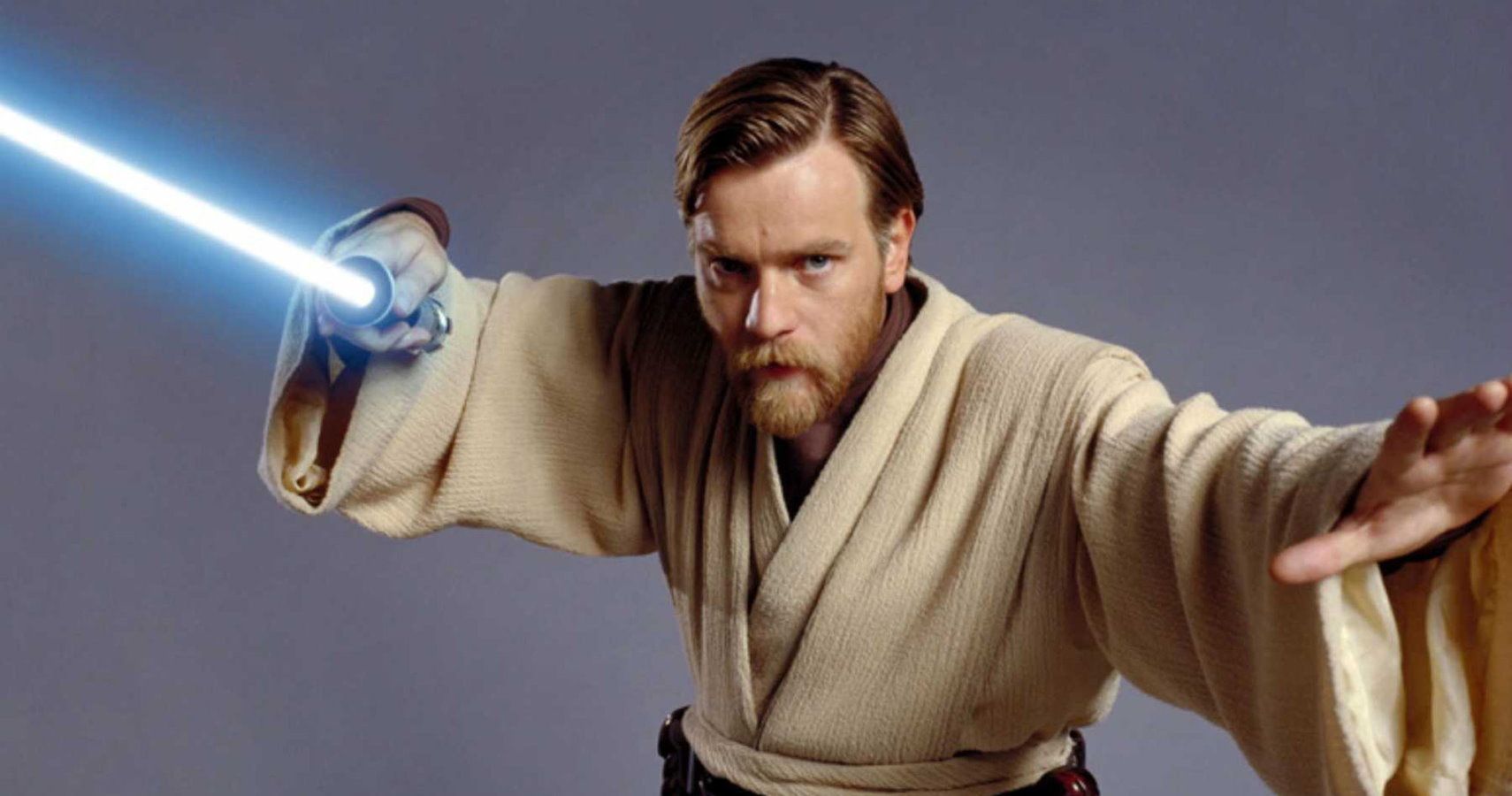As strange as it might be to think about, the Star Wars prequels are probably the most influential pieces of Star Wars media reflected in our pop culture. The original trilogy pioneered a lot of filmmaking techniques, but when we think of quotes, memes, and iconic moments, the prequels outgun the more critically revered originals. Whether you think it's fine to rehabilitate the prequels or that things were better when everyone hated them, it's clear the perception of them is constantly changing. For Ewan McGregor, watching that happen has been an emotional experience.
"It means a lot," McGregor tells members of the press gathered for a junket. "One of the difficult things about the being in the prequels was that when they came out, they were not seemingly well received because there was no social media, there was no direct avenue of to the fans at the time. And also the fans were kids. We made those films for kids. I was born in '71 So I think I was six or seven when [A New Hope] came out. I'll never forget that feeling. Once those kids who were my age when the prequels came out grew up a bit, I was able to meet them. I started hearing that people really liked them and they couldn't understand why I thought that they weren't liked when they came out. It meant a lot to me. It's really helped. I'm sure it's one of the reasons we're all set."
Because the kids who grew up with McGregor's Star Wars are now the ones shaping pop culture, he's seen a shift in how they're discussed at large, but one of the biggest changes was just being on set. In the prequels, he was just a working actor like any other movie, but coming back, a lot of the crew were major fans as kids and McGregor says that made for a warm, welcoming environment, one free of the fear you might expect when returning to a role that didn't immediately lead to a positive critical response. Over time, the ways Star Wars has been talked about has changed how McGregor feels about the role on a personal level too.
"I think I became more aware of the fondness that the generation that we made the prequels for have for those films," he says. "Because when we made them, we didn't hear that, that we didn't get that response. Gradually, I started realising that people really liked them, and that they meant a lot to that generation. So that warmed my feelings about them, I guess, or my experience of being in the Star Wars world."
The Obi-Wan show also sees McGregor reunite with his prequels co-star Hayden Christensen, anchoring how important the rehabilitation of the prequels has been. McGregor went into Star Wars off the back of Trainspotting, and starred in Moulin Rouge!, Black Hawk Down, and Big Fish while the trilogy was ongoing. Though reception to the prequels at the time was less than kind, McGregor had a dense enough filmography to weather it. Christiansen, with less experience, fewer opportunities, and more maligned in the contemporary discussion of the trilogies, saw his career fizzle afterwards. It's clear that for both actors, in different ways, the Obi-Wan Kenobi show has allowed them to heal.
"We made Episode Two and Three together, and we made them in Australia, so we're both away from home," McGregor says. "We had so much time training for the fights together and then being on set together, but also because we were so far from home, we spent a lot of time outside of work together as well, so we were close. Over the years, I guess we just slightly lost touch, I hadn’t seen him for years. So when I saw him again, I was able to talk about this project with him. It was very, very exciting. When we were acting together, it was like some sort of time warp. Looking across at him on set was like the last 17 years didn't happen at all, it was really peculiar."
Obi-Wan Kenobi launches exclusively on Disney+ May 27
Source: Read Full Article

